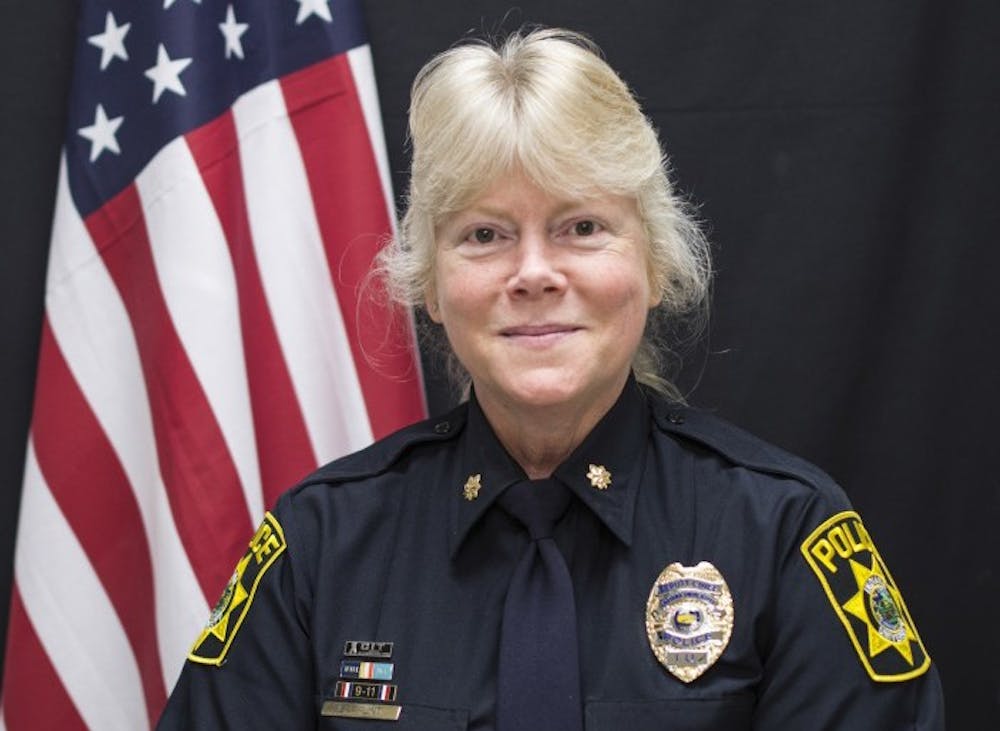It's important you feel safe and are safe during your time here at IU. The IU Police Department operates on campus with a fleet of 13 vehicles and 40 full-time officers, in addition to around 60 part-time officers and cadets.
Plenty of resources are also available from IU to help keep you safe.
The Indiana Daily Student spoke with IUPD Chief Laury Flint to learn more about the department and how students should stay safe.
Q: What is IUPD?
A: We are a police department, so 24/7, 365, we will respond. We have the typical emergency line, 911, we have an administrative line for non-emergences if they have a question (812-855-4111). I would want them to know that regardless of where they came from, we are a university police department. Our population is mainly between the ages of 18 and 22, and the challenges that presents, we understand that. We also understand that a lot of people are on their own for the first time without any parental supervision or guidance, and we know that they're going to make mistakes. We are not here to make arrests and fill quotas. We have no quotas. Basically, what we're here for is to make sure they safely get from point A when they arrive to point B when they leave campus to go out in the real world and do great things.
Q: What are the most important safety options for freshmen to know since they will be living on campus for the first time?
A: Probably our most common crime on campus is theft. Theft is a crime of opportunity and when you have a lot of people in a condensed area, and electronics have gotten smaller over the years, so very easy to pick up and conceal. I think the important thing to remember is to keep your things with you. Make sure — you and your roommate — when the room is empty, the door is locked. If you're going to be gone, leave your property locked up.
Q: What are the most important resources from IUPD freshmen should know about?
A: We offer a lot of classes, a lot of training. Probably one that’s pretty popular right now is our active aggressor training. We would like to encourage people to look at that, but if there are any questions or they want something a little more in-depth, we’d be more than willing to come in and do training for active aggressor. We also have self-defense classes, anywhere from one hour to the 12-hour rape aggression defense class. We offer an array of classes. We want to be a resource for them. If they have questions, feel free to approach us. We have live-in officers at most of the dormitories. We want to be approachable.
Q: What are the blue lights?
A: The blue lights are scattered around campus, we try to have some coordination with this being in or near areas that are a little more remote, but there are a lot of them that are in frequented areas too. All you have to do is press the large red button and it rings directly to 911. Our officers will respond and our response time in an emergency typical averages less than three minutes. We can get to places really fast. If you press the red button, you don’t even have to say anything, the location rings directly to 911 and we’ll respond. You can also make phone calls from those and it doesn’t cost you any money.
Q: What is the safe ride program?
A: The safe ride program is offered from on-campus to on-campus locations and off-campus to on-campus locations and vice-versa during specific hours, which goes into the wee hours of the morning. It’s free and there’s always a male and a female driver-passenger combination that will pick you up. So you don’t have to feel afraid or concerned.
Q: Do you have any advice or guidance for ways for freshmen to stay safe?
A: Without victim blaming, I want to make sure that people stay in control. We understand that they are 18- to 22-year-olds, typically unsupervised for the first time in their lives, making their own decisions, and some of those decisions are not going to be good ones. We understand that. But staying in control and taking care of each other. The Culture of Care is a huge student initiative on campus and it’s taken very seriously. If you could take care of each other, and if it gets to the point where you can’t take care of someone, do the right thing and make the phone call.






